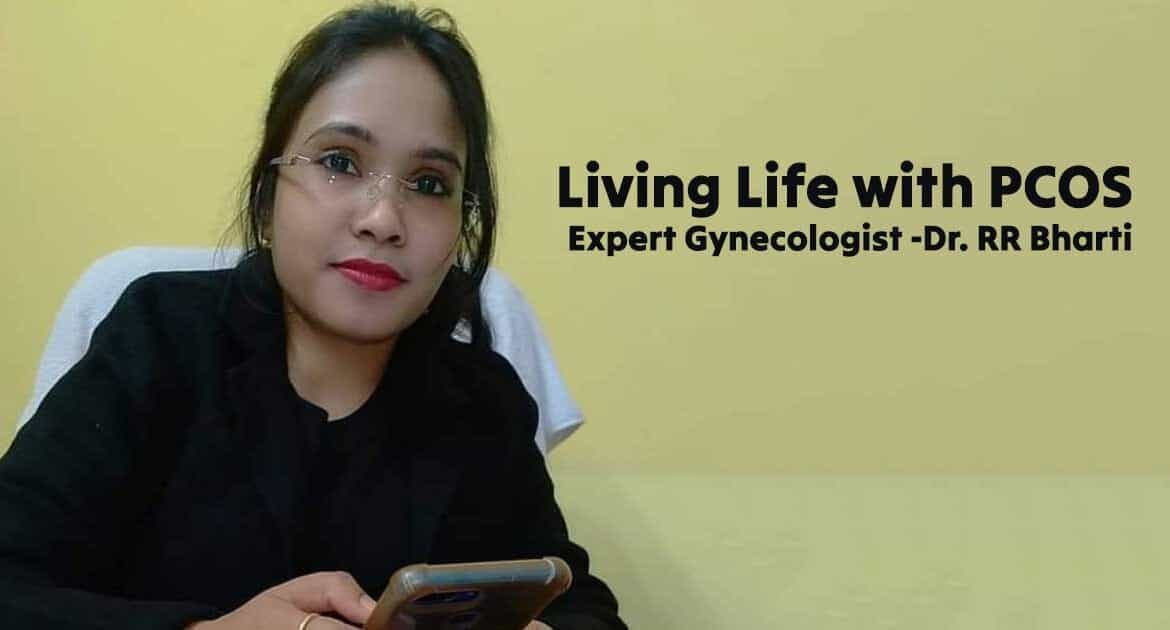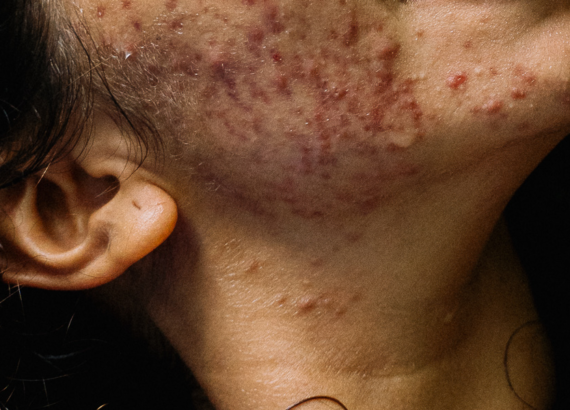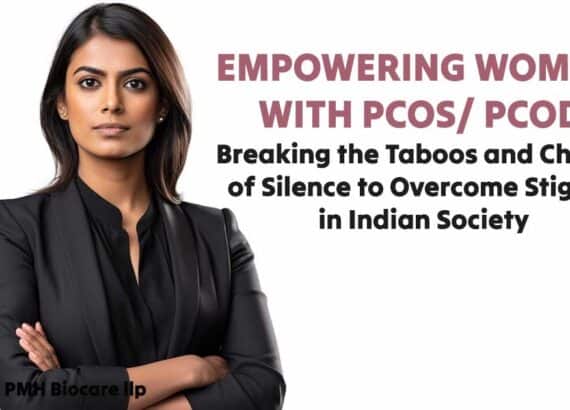Living Life with PCOS: Expert Gynecologist, Dr. RR Bharti, Provides In-Depth Insights!

Polycystic Ovary Syndrome (PCOS) is a widespread condition that affects many women worldwide, significantly impacting their physical and emotional well-being. As a gynecologist actively practicing in the field, I, Dr. RR Bharti, am committed to sharing valuable insights and guidance on effectively managing PCOS symptoms. This article aims to empower women with comprehensive information about PCOS, including its causes, symptoms, and practical strategies for symptom management. By providing accessible and actionable knowledge, my objective is to assist women in leading fulfilling lives while navigating the challenges posed by PCOS..
Understanding PCOS
Polycystic Ovary Syndrome (PCOS) is a hormonal imbalance that affects approximately one in 10 women at any given time, usually from early adolescence to around menopause. Women with PCOS have higher levels of insulin and androgens compared to those without the condition. Dr. Bharti emphasizes the role of family genes and lifestyle factors, such as diet and weight, in contributing to PCOS. Women with a family history of PCOS, particularly those from Asian, Aboriginal and Torres Strait Islander, and African backgrounds, are at a higher risk.
Symptoms of PCOS
PCOS symptoms can vary from person to person and may change over time. Dr. Bharti highlights the following common symptoms:
- Irregular or Absent Periods : Many women with PCOS experience irregular menstrual cycles or no periods at all.
- Thinning or Loss of Scalp Hair : Hair loss on the scalp can occur due to hormonal imbalances associated with PCOS.
- Excessive Hair Growth : PCOS can lead to excessive hair growth on the face or body, often referred to as hirsutism.
- Facial Rash and Weight Gain : Some women with PCOS develop a rash on the face and may experience unexplained weight gain.
- Emotional Problems : Anxiety and depression are emotional challenges that can be associated with PCOS.
- Fertility Issues : Difficulty getting pregnant is a common concern for women with PCOS.
- Increased Risk of Type 2 Diabetes : Women with PCOS have a higher risk of developing type 2 diabetes later in life.
Managing PCOS Symptoms
While PCOS cannot be cured, Dr. Bharti highlights effective strategies for managing symptoms:
- Weight Management : If overweight, losing just 5-10% of body weight can improve hormone levels and alleviate symptoms. For example, reducing 4-8 kg from an 80 kg weight may be beneficial.
- Hormonal Support : Irregular periods can be managed with hormones, contraceptive pills, and other prescribed medications.
- Hair Removal Techniques : Excess hair growth can be addressed through methods like waxing, laser hair removal, and other hair removal techniques. Medications and hormone-based treatments can also help manage this symptom.
- Acne Control : Acne, a common symptom of PCOS, can be effectively managed with appropriate medications and hormonal therapies tailored to individual needs.
- Fertility Considerations : Dr. Bharti emphasizes the importance of a healthy lifestyle, medications, and weight loss surgery, if necessary, for managing fertility in women with PCOS. Difficulties in getting pregnant are common, and there is an increased risk of developing type 2 diabetes.
- Emotional Well-being : Emotional problems such as anxiety and depression are often associated with PCOS. Dr. Bharti emphasizes the role of a healthy lifestyle, counseling, and medications in managing emotional well-being.
Recognizing PCOS
Diagnosing PCOS involves a thorough evaluation by a doctor, considering body examinations, medical history, blood tests, and, in some cases, ultrasound results. Dr. Bharti explains that having any two of the following three criteria suggests a probable diagnosis of PCOS:
- Irregular or absent periods
- Excessive hair growth and acne-like symptoms
- Ultrasound showing multiple cysts resembling “bubbles” in the ovaries
While ultrasound is generally not recommended for women under 20 years of age, it may be performed if the first two criteria are absent.




